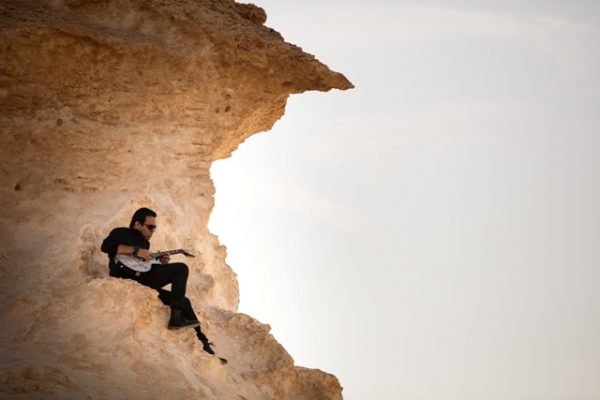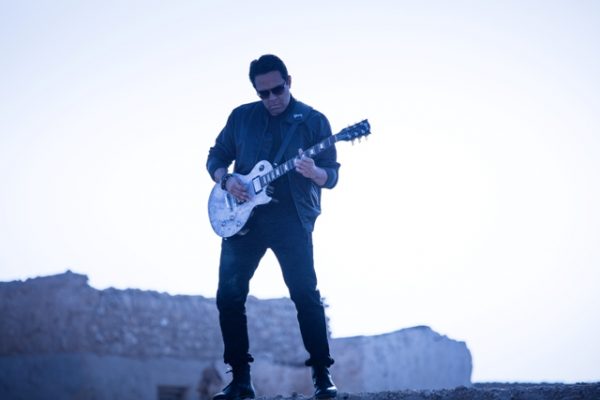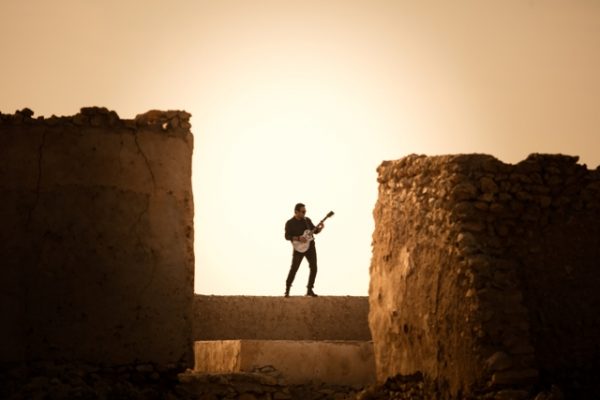Music sensations, some believe, are born on YouTube because this is where the really appreciative crowds assemble. The internet is where original impulses drive through hearts along a global pathway and are sometimes accepted, adopted, and nurtured by the conformist monarchs of the music industry. Shehzad Bhanji is one such person who I have met on a non-conformist platform, interacted with on twitter and soon realized how meaningless geographical boundaries really are. Not many of his already massive turn-over of virtual fans will know that this guitarist works “with a local NGO providing platform for young children to showcase their talent through concerts and small live performances. It also involves mentoring and preparing them for the latest trends in music industry.” If you are looking to improve your music, sites like Fiddlers Guide are a good start.
When I asked himto tell me something about himself that wasn’t already on the net, he wrote back, “Another initiative I’m working on is ‘Thinking Music’, where I help upcoming artists from music, photography and arts to build their strategic roadmap, profile & brand building, PR, social media & content strategy and online distribution. But I do take into account the commitment and passion of the artist before getting me involve since I have limited time and want to use it in the right areas.” So there you go… what a charming personality he is for the musically inclined! I almost wished he was doing all this in India, for Indians, and with Indians.
Talking of India, we do have our own families of gharanas and gurus where music is bound by the laws of that school. This is what differentiates it from other schools in India. One obvious question was to ask if this guitarist from the Middle East has had a grilling at some such school. So I asked: Your music is your own identity and lovers of good music identify you with your style. Did you get your style from some specific school of music? Is your music connected in any way to the music traditions followed in your region?
Shehzad floored me by the simple transparency of his reply. He said, “I’m completely a self-taught guitarist. I didn’t come from a music family background and no one in my family had played any instrument before. So it was difficult to make parents understand because studies always took priority. On the other hand let me share an interesting story with you. I’m basically left handed and when I went to one of the music school they told me that left-handed person cannot be a guitarist. Pick some other instrument. At that time the music school wanted to stay away from the hassle. So instead of ending my dream of playing guitar I started practicing to play with my right hand. It took months but I managed to switch myself.
The music I play is not connected to local traditions if you see it on face value. But if you look deeper, you will find my instrumentals are definitely connected with the regional traditions through melodies. Musical scales are the same, but a guitarist from, say, South Asia would play it in a different style versus a guitarist from Southeast Asia or America or Europe. Traditions therefore have very strong influence in the way we produce and play music.” I could see that besides a subliminal love for music, this musician had all the genetic coding for perseverance as well. From being a lefty who was left pout he worked hard to nurture the right side and I guess the first mantra for success is right here in this story of Shehzad.
I’m sure you must have started early, I asked, as your story is full of steps that take time to master. I also wondered why Shehzad did not simply take the easier path of gravitating towards some other musical instrument. To this, he said, “I started playing at the age of 14. Interestingly, I started my music journey with bass guitar but quickly switched myself to electric lead guitar as it allowed me more freedom to express myself. I was found of listening to rock music and one day I saw the music video of a rock band Iron Maiden. The guitarists doing some crazy stuff on stage just stuck me and I told myself that I want to be a guitarist. I do play bass on most of my tracks. It reminds me of where it started for me. I can also play a bit of keyboards and drums too.” Well, his is the story of not just perseverance and fascination with stage antics but also of discovering his muse in Joe Satriani. He grew up listening to Joe and he read all about the struggles the man had to face before reaching the summit. Shehzad is humble enough to admit that Joe “has been single source of inspiration for me and what I produce.” When Shehzad finally met Joe in February 2017 and gifted him his album ‘Profound Beginnings’, the moment was like a “dream come true for me. I was sitting not only with the world’s no. 1 guitarist but with someone whom I have been listening for the last 20 years.”
I now share below a few of the other questions on sensitive issues that I sent across with the answers that Shehzad was nice enough to sit down and answer…
Q. Music, streaming, and profits now run together. Streaming or downloading isn’t any longer an offence. My first question is woven around money. What sort of money has your love for your guitar given you?
“Initially, you should be ready to invest in yourself because if nobody knows who you are, what kind of music you play, then no one would buy your music. These days releasing the content is so easy on leading music distribution outlets but it doesn’t guarantee sales would happen too. The biggest challenge is how to stand out from this crowded space, identify super fans who would be interested in listening to your kind of music, convince them to follow your social platforms and become your advocates. These super fans are the ones who would actually buy your stuff.”
Q. Your opinion on plagiarism in music. The West is forever pointing fingers towards the East and claiming that originality from the West is picked up and remixed. Are they correct?
“They were correct to an extent. But it used to happen more in 80s and 90s. Our musicians and producers have learned the art of producing original content. Project like Coke Studio is a perfect example where they took fusion music to a whole new level. It is not an original content but at least it’s ours. I’m biggest fan of such projects because they are bringing back these amazing songs from the past and presenting it in a way so young generation can relate to it. It’s a perfect way of showcasing our history and culture to the west.”
Q. Are there any other creative arts that attract you? If yes, please tell us about them… and tell us if those arts help you find your rhythm and beats.
“I listen to different genres such as blues, ambient, experimental, jazz and atmospheric. All the above genres do have an influence but interesting part is that most of the time I don’t even notice it. Friends, fans or music reviewers usually come back to me that it has a feeling of this genre too.
It’s about what mood or what are you feeling in that moment. That’s my starting point. Song inspiration can come from so many areas. I wake up in the morning and I’ll have a feeling about a place or somebody or something that happened to me. I might read something or bump into somebody and some feeling will hit me. And I go with the inspiration; If I want to write a song about summer coming and I’m driving in a convertible, I’m going to write a summer song. That’s my true passion: simply to write music around what I experience in life and it connects very well with the listeners too.”
Q. Everything around is changing rapidly and music too has already experimented with hybrid forms and remixes. What next do you think is going to happen?
“The whole music environment has become very scientific especially after the digital revolution. It will become even more as we discover new ways to learn more about the listeners. And it’s a blessing. Let me tell you why because now we can push the relevant content to the right audience. Although, there is still a long way to go but it’s incredible to see what we have managed to achieve. I never thought that my music will be heard in Africa and other parts of the world. It wasn’t on my listener profile. So I foresee that all genres will grow but change will happen in how they are marketed to the listeners.”
Shehzad has a heart-warming control over the strings of his guitar and what flows out simply calms and soothes frayed nerves. He calls music “the perfect distraction” and even for his own anxiety-filled moments, it is music that “helps me focus and give satisfaction and inner peace”. Now, isn’t this the perfect philosophy of how music should be? When asked to share a message for music lovers from India, Shehzad wrote back, “Support new genres and upcoming musicians in terms of buying their tracks and promotional merchandize, concert tickets and their singles/albums. This is the best gift you can give to upcoming musicians. It’s actually giving them hope to keep producing good music regardless of genre of classification.” I guess this also tells me that Shehzad isn’t just a music genius and an expert at navigating his way through the treacherous jungles of the virtual world, but also exceptionally business savvy and a man who knows how to make the right side work well!
.
.
All photographs in this post are by Jaber AlAzmeh at Dow Photography Qatar.
.
.
.
.
Arvind Passey
13 April 2017











